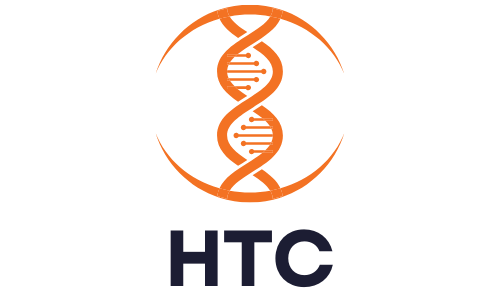The Convergence of HealthTech and Health Equity
The healthcare industry is undergoing a significant transformation driven by rapid technological advancements and a growing emphasis on patient-centric care. Innovations in health technology (HealthTech) are revolutionizing various aspects of healthcare, from diagnostics and treatment to patient monitoring and health management. As this industry evolves, there is an increasing recognition of the critical need to address health disparities and promote health equity.
Health equity, the principle that everyone should have a fair opportunity to attain their full health potential regardless of social, economic, or demographic factors, is emerging as a pivotal area of focus. Despite advancements in healthcare, significant disparities in health outcomes persist across different communities, often influenced by race, ethnicity, socioeconomic status, and geographic location. These disparities not only lead to profound human consequences but also carry substantial economic implications.
The convergence of HealthTech and health equity offers a unique opportunity to bridge these gaps and ensure equitable access to quality care for all individuals. By leveraging cutting-edge technologies such as digital health platforms, data analytics, artificial intelligence (AI), and telemedicine, HealthTech startups are poised to play a crucial role in promoting health equity.
This article explores the investment opportunities within this burgeoning intersection of HealthTech and health equity. We will delve into the importance of health equity, the role of HealthTech in addressing these challenges, and the strategies investors can adopt to support startups that are committed to making healthcare more equitable and accessible for underserved communities.
The Importance of Health Equity
Health equity is the principle that every individual should have a fair and just opportunity to attain their highest level of health. This concept emphasizes the need to remove obstacles to health such as poverty, discrimination, and their consequences, including lack of access to good jobs with fair pay, quality education and housing, safe environments, and healthcare.
Despite the progress in medical science and healthcare delivery, significant health disparities persist across various communities. These disparities are often driven by a complex interplay of race, ethnicity, socioeconomic status, and geography. For instance, racial and ethnic minorities frequently experience higher rates of chronic diseases, lower life expectancy, and poorer health outcomes compared to their white counterparts. Similarly, individuals from low-income backgrounds or those living in rural areas often face barriers to accessing healthcare services, leading to worse health outcomes.
The economic implications of these health disparities are substantial. A report by the W.K. Kellogg Foundation and Altarum highlighted that health disparities and premature deaths among racial and ethnic minorities in the United States resulted in an estimated economic loss of $1.24 trillion between 2003 and 2006. These costs stem from increased medical expenses, lost productivity, and the broader societal impact of untreated or poorly managed health conditions.
Addressing health equity is not only a moral and social imperative but also an economic necessity. By closing the health equity gap, we can improve the overall health of the population, reduce healthcare costs, and enhance economic productivity. This is where HealthTech can make a significant impact by developing innovative solutions that improve access to quality care for underserved communities, ultimately contributing to a more equitable healthcare system.
The Role of HealthTech in Promoting Health Equity
HealthTech startups are uniquely positioned to address health equity challenges through innovative solutions that leverage technology to improve access, affordability, and quality of care. By harnessing the power of digital platforms, data analytics, artificial intelligence (AI), and telemedicine, these startups can overcome traditional barriers and reach underserved communities more effectively.
Leveraging Digital Platforms and Data Analytics
Digital platforms enable the delivery of healthcare services to patients regardless of their geographical location. Telemedicine, for instance, allows patients in remote or underserved areas to consult with healthcare providers without the need for travel. This reduces the barriers to accessing care and ensures that more people can receive timely medical attention.
Data analytics and AI play a crucial role in understanding and addressing health disparities. By analyzing large datasets, HealthTech companies can identify patterns and trends that highlight the specific needs of underserved communities. This information can then be used to develop targeted interventions that address these needs more effectively.
Example 1: Cityblock Health
Cityblock Health is a prime example of a HealthTech startup that is actively addressing health equity challenges. Founded in 2017, Cityblock Health provides value-based healthcare services to underserved urban communities. The company leverages data analytics and personalized care plans to improve health outcomes and reduce costs.
Cityblock Health partners with payers and providers to deliver comprehensive care tailored to the unique needs of each community. Their approach focuses on integrating primary care, behavioral health, and social services to address the full spectrum of health and social needs. By focusing on the whole person, Cityblock Health aims to reduce healthcare disparities and improve the overall well-being of their members.
Example 2: Omada Health
Omada Health is another notable HealthTech startup making strides in promoting health equity. Omada Health offers digital behavior change programs for chronic conditions such as diabetes, hypertension, and obesity. Their programs combine personalized coaching, interactive lessons, and digital tracking tools to support individuals in making sustainable health improvements.
Omada Health's virtual care model makes their programs accessible to a wide range of populations, including those in underserved areas. By providing accessible and personalized care, Omada Health aims to improve health outcomes and reduce healthcare costs, particularly for populations that traditionally have limited access to high-quality care.
The convergence of HealthTech and health equity is creating significant opportunities to address long-standing disparities in healthcare. Startups like Cityblock Health and Omada Health are leading the way by developing and implementing innovative solutions that leverage technology to provide equitable access to care. By focusing on the specific needs of underserved communities, these companies are not only improving health outcomes but also demonstrating the potential for HealthTech to transform the healthcare landscape in a more inclusive and equitable manner.
Investment Opportunities in Health Equity HealthTech
The convergence of HealthTech and health equity is not only addressing critical healthcare needs but also creating substantial investment opportunities. As the demand for equitable and accessible healthcare solutions continues to grow, investors are increasingly recognizing the potential of HealthTech startups that focus on health equity.
Increasing Demand for Equitable and Accessible Healthcare Solutions
Healthcare disparities driven by socioeconomic, racial, and geographic factors have long been a challenge. The COVID-19 pandemic has further highlighted the urgent need for solutions that ensure everyone has access to quality healthcare. This increased awareness and demand for health equity are driving growth in the HealthTech sector, particularly in startups that develop innovative, equitable healthcare solutions.
Growth in Venture Capital Funding
The growth in venture capital funding for digital health equity startups reflects the rising interest and potential in this space. According to a report by Rock Health, digital health equity startups raised over $1.6 billion in venture capital funding in 2021, a significant increase from previous years. This surge in investment underscores the market's recognition of the importance and opportunity in addressing health disparities through technology.
Key Considerations for Investors
Investing in health equity HealthTech startups requires a nuanced understanding of the unique challenges and considerations involved. Here are some key factors that investors should evaluate:
Navigating Complex Regulatory Landscapes
HealthTech startups often face complex regulatory requirements, especially those that operate in areas like telemedicine, digital therapeutics, and AI in healthcare. Investors need to assess the startup’s ability to navigate these regulatory landscapes effectively. This includes understanding the approval processes, compliance with health regulations, and the startup’s strategies for managing regulatory risks.
Building Trust Within Underserved Communities
Trust is crucial when delivering healthcare solutions to underserved communities. Startups must demonstrate cultural competence and engage with communities in meaningful ways to build trust. Investors should look for startups that have strong community engagement strategies and partnerships with local organizations. These connections can facilitate better understanding of the community's needs and improve the adoption of health solutions.
Demonstrating Measurable Improvements in Health Outcomes
Successful health equity HealthTech startups must show measurable improvements in health outcomes. This requires robust data collection and analysis capabilities to track and report on the effectiveness of their solutions. Investors should prioritize startups that can provide clear, evidence-based results demonstrating their impact on health disparities and overall community health.
Scalability and Replicability of Solutions
The ability to scale and replicate solutions across different communities is essential for maximizing impact and return on investment. Startups should have a clear plan for scaling their operations and adapting their solutions to various settings. Investors should evaluate the scalability of the startup’s technology, business model, and operational infrastructure.
By considering these factors, investors can make informed decisions and support HealthTech startups that are well-positioned to address health equity challenges and achieve sustainable growth.
The growing demand for equitable and accessible healthcare solutions is creating significant opportunities for investors in the HealthTech sector. Startups focusing on health equity, such as those improving access, affordability, and quality of care, are attracting substantial venture capital funding. However, investing in these startups requires a comprehensive understanding of the unique challenges they face, including navigating regulatory landscapes, building community trust, demonstrating measurable health outcomes, and ensuring scalability. By carefully evaluating these considerations, investors can identify and support HealthTech startups that have the potential to transform healthcare and promote health equity on a broader scale.
Perspectives from Industry Experts and Publications
Insights from the California Health Care Foundation (CHCF)
The California Health Care Foundation (CHCF) is a prominent nonprofit organization dedicated to improving healthcare delivery and outcomes in California. CHCF has emphasized the critical role that technology can play in promoting health equity and reducing healthcare disparities. Their insights provide valuable perspectives for investors and stakeholders interested in supporting HealthTech solutions that address health equity.
Key Findings from CHCF’s Report "Equity in the Age of Digital Health"
CHCF’s report, "Equity in the Age of Digital Health," highlights the transformative potential of digital health tools in improving access, engagement, and health literacy among underserved populations. Key findings from the report include:
- Access to Care
- Digital health tools, such as telemedicine and mobile health applications, can bridge the gap for individuals in remote or underserved areas, providing them with access to healthcare services that were previously unavailable.
- These tools can also facilitate continuous care management, reducing the need for costly and time-consuming in-person visits.
- Patient Engagement and Health Literacy
- Digital health solutions can enhance patient engagement by providing personalized health information and reminders, thus encouraging patients to take an active role in their health management.
- Health literacy can be improved through accessible and easy-to-understand digital content, helping patients better understand their health conditions and treatment options.
- Potential Risks
- The report cautions that if digital health solutions are not designed with equity in mind, they could inadvertently exacerbate existing disparities. Issues such as digital literacy, internet access, and affordability must be considered to ensure these tools benefit all populations.
Overview of Rock Health's "Digital Health Equity Report"
Rock Health's "Digital Health Equity Report" delves into the investment landscape and emerging trends in digital health equity. The report provides an in-depth analysis of how HealthTech startups are addressing health disparities and highlights key investment opportunities. Notable insights from the report include:
- Investment Trends
- The report notes a significant increase in venture capital funding for digital health equity startups, reflecting growing recognition of the market potential and societal impact of these solutions.
- Startups focusing on telehealth, remote patient monitoring, and digital therapeutics are particularly attractive to investors due to their ability to deliver scalable and accessible healthcare solutions.
- Barriers and Challenges
- Despite the promising investment landscape, the report identifies several barriers that digital health equity startups face, including regulatory hurdles, data privacy concerns, and the need for robust clinical validation.
- The report emphasizes the importance of addressing these challenges to unlock the full potential of digital health solutions in promoting health equity.
Overview of CB Insights' "Digital Health Equity Startups to Watch"
CB Insights' "Digital Health Equity Startups to Watch" highlights innovative startups that are making significant strides in addressing health disparities through technology. The report identifies key startups that investors should keep an eye on, providing insights into their unique approaches and potential for impact. Key takeaways from the report include:
- Innovative Approaches
- The featured startups are leveraging cutting-edge technologies such as artificial intelligence, machine learning, and blockchain to develop solutions that improve healthcare access, affordability, and quality for underserved populations.
- Examples include platforms that offer culturally competent care, mobile clinics that bring healthcare services directly to communities, and digital health tools designed to improve chronic disease management.
- Market Potential
- The report underscores the significant market potential for digital health equity solutions, driven by the increasing demand for inclusive and accessible healthcare.
- Investors are encouraged to support startups that not only demonstrate strong technological capabilities but also have a clear mission and strategy for addressing health disparities.
Notable Labs: Pioneering HealthTech Innovation in Underserved Communities
Notable Labs leverages cutting-edge HealthTech to bring precision medicine to underserved communities, addressing health disparities and promoting equitable healthcare."
As a shining example of a HealthTech startup dedicated to promoting health equity, Notable Labs stands out for its innovative approach to precision medicine. Founded with the mission to revolutionize cancer treatment, Notable Labs combines advanced genomic data analysis, machine learning algorithms, and personalized drug development to create tailored therapies for individual patients. Their technology is particularly impactful in underserved communities, where access to cutting-edge cancer treatments has historically been limited.
Innovative Approach to Precision Medicine Notable Labs employs a sophisticated platform that analyzes a patient's unique genetic, molecular, and clinical data to predict which therapies are most likely to be effective. By leveraging machine learning, they can provide personalized treatment plans that significantly improve patient outcomes. This approach is crucial in underserved communities where traditional, one-size-fits-all treatments often fall short.
Focus on Underserved Communities Notable Labs is committed to ensuring that their life-saving technologies reach those who need them most. By partnering with community health organizations and leveraging telemedicine, they are able to deliver their innovative precision medicine solutions to underserved urban and rural populations. This focus not only addresses immediate health disparities but also helps to build a foundation for long-term health equity.
Building Trust and Accessibility One of the key challenges in promoting health equity is building trust within underserved communities. Notable Labs actively engages with local healthcare providers and community leaders to ensure that their solutions are culturally sensitive and accessible. Their efforts to provide clear communication and education about their technologies help to build trust and encourage adoption among diverse populations.
Measurable Impact and Outcomes Notable Labs emphasizes the importance of demonstrating measurable improvements in health outcomes. They conduct rigorous clinical trials and collect real-world data to validate the effectiveness of their treatments. This evidence-based approach not only supports their mission to improve patient care but also attracts significant investment from those looking to support impactful HealthTech innovations.
Expanding Market Reach The success of Notable Labs in addressing health disparities through precision medicine highlights the significant market opportunities for HealthTech startups focused on health equity. By continuing to innovate and expand their reach, Notable Labs serves as a model for how technology can be harnessed to promote equitable healthcare solutions across diverse communities.
In summary, Notable Labs exemplifies the convergence of HealthTech and health equity, demonstrating how innovative solutions can address health disparities and promote better health outcomes for underserved populations. Their work underscores the importance of investing in HealthTech startups that prioritize health equity, ultimately contributing to a more inclusive and effective healthcare system.
Strategies for Inclusive and Equitable HealthTech Investment
Prioritizing Community Engagement Engaging with the communities they aim to serve is crucial for HealthTech startups focused on health equity. Co-creating solutions with input from these communities ensures that the technologies developed are culturally sensitive, relevant, and effective. Investors should look for startups that demonstrate a commitment to community engagement by actively involving local healthcare providers, community leaders, and patients in the development process.
Criteria for Evaluating Community Engagement Efforts:
- Involvement of community stakeholders in product development and testing.
- Ongoing communication and feedback mechanisms with community members.
- Evidence of collaboration with local health organizations and community groups.
Evaluate Accessibility and Affordability HealthTech solutions must be accessible and affordable to effectively address health disparities. Startups should have strategies to overcome language barriers, improve digital literacy, and cater to diverse socioeconomic backgrounds. Investors should assess the inclusivity of a startup’s user interface, the availability of multilingual support, and the provision of digital literacy programs.
Consideration of Pricing Models and Overall Affordability:
- Sliding scale fees or subscription models based on income levels.
- Partnerships with payers to cover or subsidize costs for low-income patients.
- Development of cost-effective solutions that maintain high-quality care.
Emphasize Measurable Impact Investors should prioritize startups that have a clear and actionable strategy for measuring the impact of their solutions on health outcomes and cost savings. This includes using robust data collection and analysis methods to demonstrate improvements in patient health, healthcare efficiency, and overall health equity. Startups should be transparent about their metrics and regularly report on their progress.
Evaluating Startups Based on Impact:
- Use of clinical trials and real-world evidence to validate effectiveness.
- Regular reporting of key performance indicators related to health outcomes and cost savings.
- Demonstrated improvements in health equity within the target communities.
Foster Diverse and Inclusive Teams Diversity within startup teams can lead to more innovative and effective solutions by bringing a wide range of perspectives and experiences to the table. Inclusive teams are better equipped to understand and address the unique challenges faced by underserved communities. Investors should encourage startups to prioritize diversity in their hiring practices and leadership structures.
Role of Diversity and Inclusivity within Startup Teams:
- Evidence of diverse representation in leadership and decision-making roles.
- Initiatives to foster an inclusive workplace culture.
- Commitment to equitable hiring practices and professional development opportunities for all employees.
Collaborate with Stakeholders Addressing health equity challenges requires a collaborative effort involving various stakeholders, including healthcare providers, payers, policymakers, and community organizations. Investors should support startups that actively seek partnerships and collaborations to enhance their capabilities and impact. These partnerships can provide critical resources, expertise, and support to help startups scale their solutions and reach more communities.
Leveraging Stakeholder Expertise and Resources
- Forming strategic partnerships with healthcare providers and payers to ensure broader access and affordability.
- Engaging policymakers to advocate for supportive regulations and funding opportunities.
- Collaborating with community organizations to enhance outreach and impact.
By embracing these strategies, investors can effectively support HealthTech startups that are committed to promoting health equity. Investing in inclusive and equitable HealthTech solutions not only drives positive social impact but also opens up significant market opportunities, contributing to the overall growth and innovation in the healthcare industry.
Conclusion
Investing in HealthTech startups that focus on health equity is not only a moral imperative but also a sound financial strategy. The convergence of health technology and health equity presents a significant opportunity to address longstanding disparities in healthcare access and outcomes. By directing capital toward innovative solutions that cater to underserved communities, investors can play a crucial role in driving meaningful change in the healthcare landscape.
Investors have the power to promote and scale innovative solutions that can transform healthcare delivery and improve health outcomes for marginalized populations. Their support can enable HealthTech startups to develop and implement technologies that are accessible, affordable, and effective, thereby bridging the gap in healthcare disparities. Moreover, by fostering diversity and inclusion within startup teams and engaging with community stakeholders, investors can ensure that these solutions are culturally relevant and widely accepted.
To effectively contribute to health equity, investors should adopt comprehensive strategies that prioritize community engagement, assess accessibility and affordability, emphasize measurable impact, foster diverse and inclusive teams, and encourage collaboration with various stakeholders. These strategies not only enhance the potential for successful investments but also ensure that the solutions developed have a lasting positive impact on health equity.
As the healthcare industry continues to evolve, the importance of health equity will only grow. By staying informed about emerging trends, regulatory changes, and technological advancements, investors can identify and support promising HealthTech startups that are poised to lead the next wave of innovation in equitable healthcare. The time is ripe for investors to take an active role in shaping a more inclusive and fair healthcare system, ultimately improving the lives of countless individuals in underserved communities.










